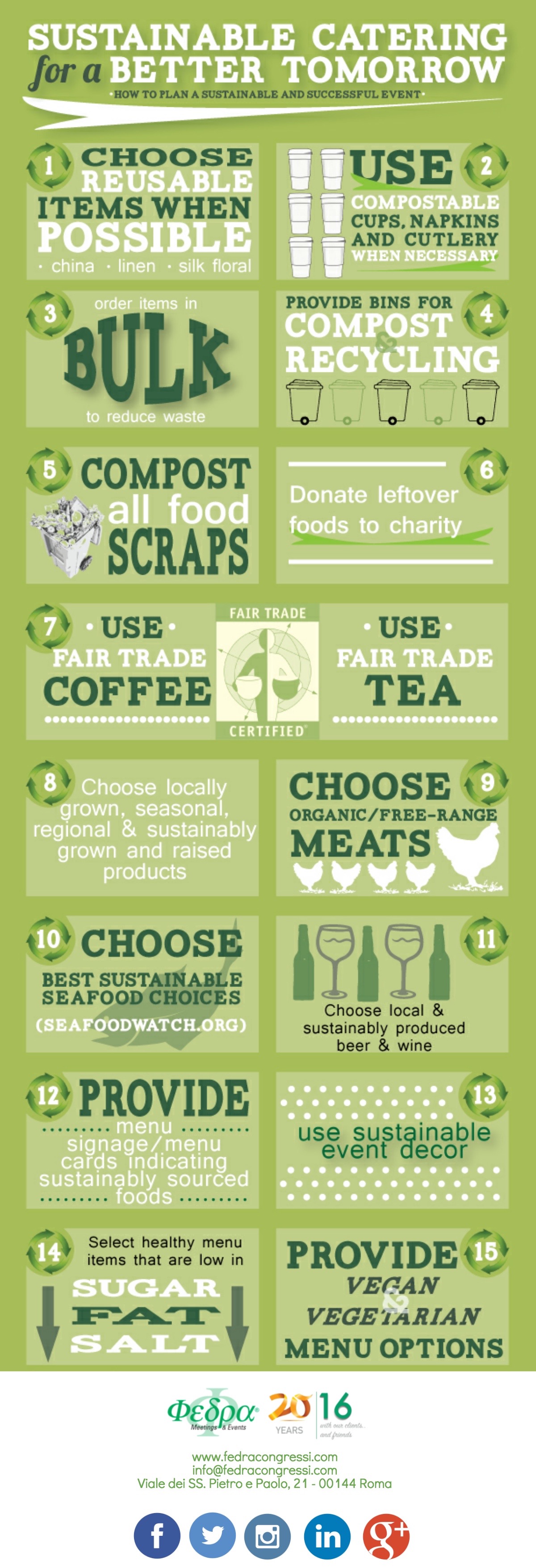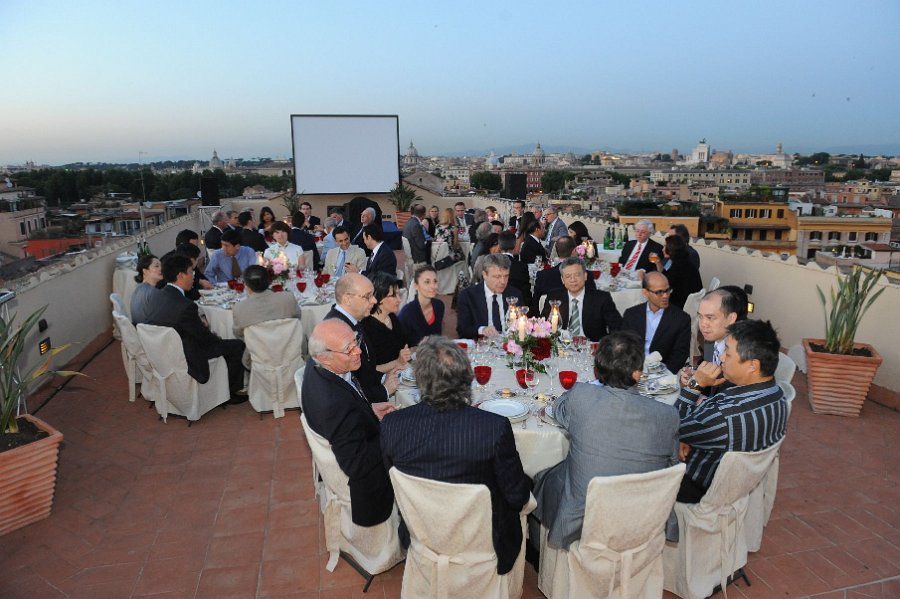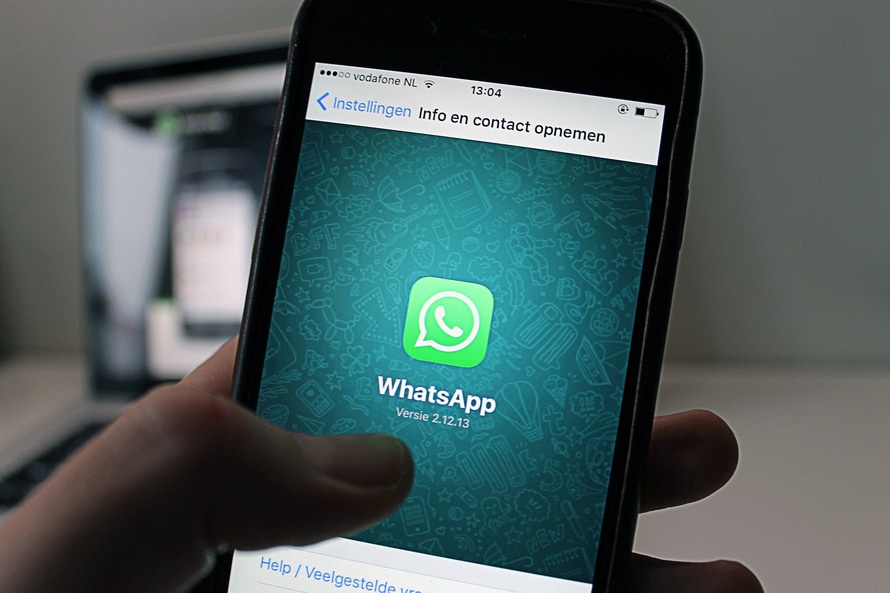Sharing a meal can play an important community-building function, attract people to hear your message or support your organization, or simply provide sustenance to busy students as they attend yet another meeting rather than attending to their dietary needs.
Food and dinnerware do, however, constitute the most significant source of waste and environmental impact at most campus events. For this reason, it is important to take some simple steps to make food and food service more sustainable.
Here is an infographic that will show you how to plan a sustainable and successful event:
![Sustainable Catering is possible [Infographic]](https://www.fedracongressi.com/fedra/wp-content/themes/avant/images/blank_blocks_img.png)















